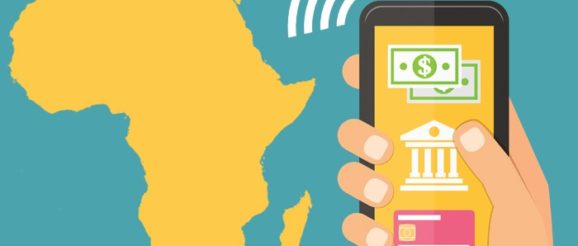Telecom Fintech innovation is spreading

MPesa`s early success in Kenya, will remain the mobile money business case study of payment innovation in Emerging markets[1]. It was 12 years ago; in 2007 when Vodafone launched the service.
Africa continues to be the continent where `Necessity is the mother of invention`.
Africa brings to market further efficiencies, improving the MPesa business model and pushing innovation in financial inclusion (be it remittances, micro-payments, or microinsurance). However, it is not as easy as it may seem. As Chris Skinner notes:
Not only was M-Pesa a roaring success, but its concept was copied in most countries across Africa, Asia and South America. I say concept because M-Pesa itself has failed to repeat its success in other countries.[2]
Today, EcoCash, is a success story in Zimbabwe. It is a rich mobile payment platform hosted by local telco, Econet. Despite recent tech glitches on the Ecocash platform[3], Econet the parent telco continues an expansive digital strategy. It spun off Cassava Smartech, an entity that offers more financial services than just mobile money. From remittances, digital banking and all kinds of insurance.
Orange Money, started in 2008 in Côte d’Ivoire and has currently 40million customers in Africa in 17 countries (francophone and anglophone). Late last year MTN Money[4] and Orange Money, teamed up to create a JV, called Mowali[5]. They are targeting the 300 million mobile money users in Africa. MTN and Orange alone operate in 22 African countries. Mowali is built on the open-source software payment platform Mojaloop, of the Bill & Melinda Gates Foundation. The aim is Interoperability at a pan-african level.
South African startup, Wala, has launched its own mobile money solution, with the Dala utility token, using blockchain technology. Wala provides no-fee banking services and is creating a decentralized financial platform (Defi) functioning with the Dala coin. Listen to my interview with founder Tricia Fernandez on the unique approach of the Wala foundation.
Dala is one example of the opportunity that Telecoms can grasp by using tokens, be it stablecoins or some such, in order to offer their existing customers ways to manage their digital lives. Alex Mifsud, Co-founder and CEO, Open Payments Cloud emphasizes this point[6] and uses the example of Dala in South Africa and another approach used in Mongolia. The Mongolian telecom company, Mobicom, has received approval to issue a stablecoin (pegged to the national currency), called “Candy”. Every Mongolian citizen will be able with a mobile phone to pay bills, shop online, transfer funds, and take out microloans. The pilot will start in the capital, Ulaanbaatar[7].
Now back to the West – US and Europe. The recent T-Mobile announcement of a bank account offering did create some talk. For me, it is a move from a Telecom to extend services to non-T-Mobile customers. But the business innovation is lacking, as it is backed by a conventional bank – Customer Bank is behind the Baas service of T-Mobile Money. This is actually very different to Orange Money, that has also a bank of its own that was launched in 2017. Orange bank is built from the start with a customer relationship model based on AI technology. It has signed up 200,000 customers as of the start of Q1 2019. It has set a target of reaching 4 million customers and €500 million of net income from banking within five years.
Telecoms and banking
`My conclusion was that banks would merge with telecommunications firms and become hybrid institutions. Twenty years later, it hasn’t happened.` excerpt from Chris Skinner`s vision Banks and Telcos? Two become one!
Will this blurring become true soon?
Will Orange become the business case or some African entity?
Who will customers trust for their financial digital business?
Will blockchain be the enabler or will AI banking be enough?
[1] Why is M-Pesa the foster child for Financial inclusion? Faisal Khan
[2] Getting the Infrastructure Right for Financial Inclusion, Chris Skinner 2018
[3] A two-day crash in Zimbabwe’s mobile money system shows the vulnerabilities of going cashless
[4] MTN is Africa’s largest telecoms operator
[5] Unlocking mobile money interoperability and merchant payments across Africa through Mowali
[6] Telecoms need not sideline cryprocurrencies, by Arti Mehta, TMForum
[7] Mongolia Starts Off 2019 With Its Eyes On Crypto Payment Adoption
Efi Pylarinouis the founder of Efi Pylarinou Advisory and a Fintech/Blockchain influencer.
I have no positions or commercial relationships with the companies or people mentioned. I am not receiving compensation for this post.
ahead of the curve. Check out our advisory services (how we pay for this free original research).
